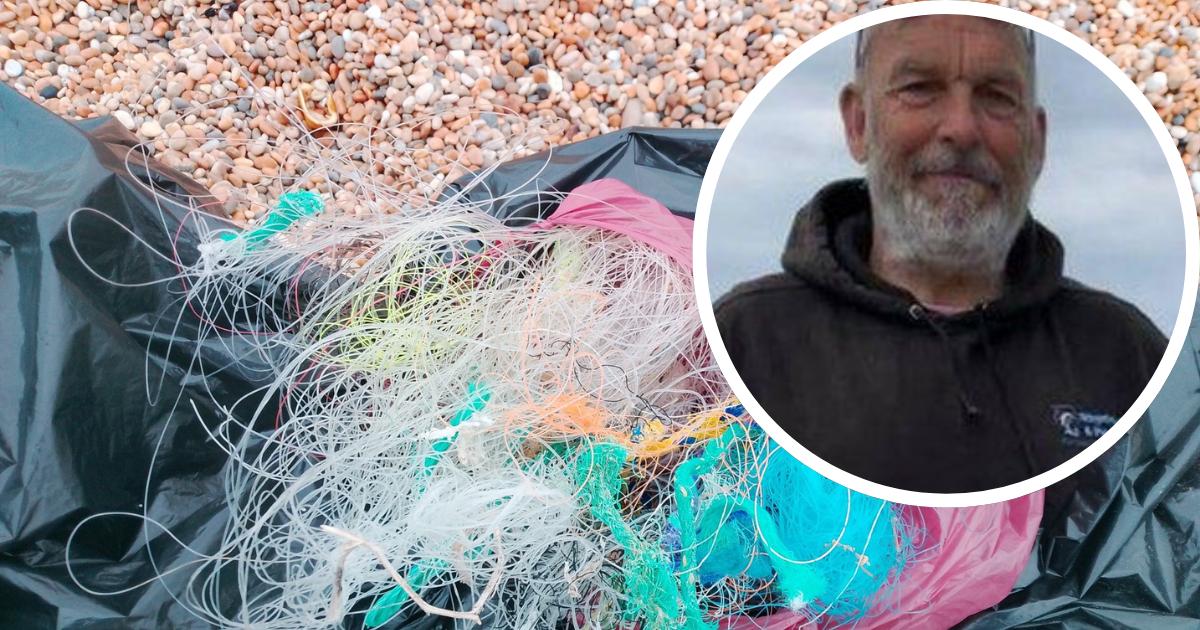Volunteers from Weymouth and Portland Marine Litter project came across the remains of a fox who had died after fishing line had become wrapped around its back legs along with a lead weight.
Approximately 50m further along the shore, volunteers found a bird which had died as a result of swallowing a fishing hook.
Dave Taylor co-founder of the group said: “We do not usually cover Abbotsbury but decided to visit after reports of litter on social media. We were not however expecting to find such a graphic example to remind us of why we started the organisation.
Fishing line (Image: Weymouth and Portland Marine Litter Project)
“The first discovery was a fox whose rear legs had been bound together by fishing line and a large lead weight.
“We then came across the remains of a bird with a large hook in it’s mouth and several feel of line.
“We managed to remove four large sacks of rubbish including a carrier bag full of line, feather lures and hooks.”
Dead fox (Image: Weymouth and Portland Marine Litter Project)
One of the reasons that Jane Fuhrmann co- founded the group with Mr Taylor was because her dog swallowed a fishing hook on Chesil Beach.
She said: “We would like to remind anglers to check the beach for tackle and not just their own before leaving. There are dedicated bins for fishing tackle at both Abbotsbury Café and the Chesil Visitor Centre.”
The project was founded with the main objective being to create community-based projects aimed at reducing the pollution from litter in our seas and on our beaches.
Litter collected (Image: Weymouth and Portland Marine Litter Project)
The pair regularly host litter picks around Dorset, recycling as much as possible to make sure it doesn’t end up back in the sea and on the beaches.
Usually volunteers at the group complete litter picks around the Weymouth and Portland area including Weymouth Harbour, the Fleet, Weymouth Beach, and Chesil Beach.
Plastic bag (Image: Weymouth and Portland Marine Litter Project)
It isn’t uncommon for volunteers to come across plastic bottles, dirty nappies and food boxes, as well as abandoned beach toys, pop-up tents and parasols.
Most of the litter collected by the group gets recycled.

